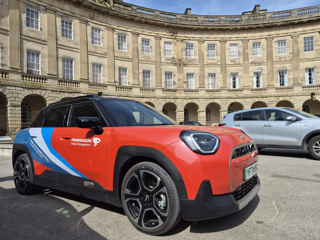By John Messore, freelance tax expert on company cars, vans and fuel cards
Having worked in tax for 40 years and specialised in cars, vans, fuel cards etc. for the last 20 years I am concerned about the constant tinkering when it comes to benefit in kind (BIK) legislation, albeit it also creates opportunities.
My analysis, when you look at the Government’s justification, is that HMRC is targeting all employee car ownership schemes (ECOS) and not just ‘contrived’ ECOS. The Autumn Budget 2024 Policy costings implies as much.
Take a £40,000 list price car with a 25% BIK of £10,000 or say £4,000 tax and £1,500 Class 1 NIC.
Under ECOS that tax can be saved in favour of a much lower tax, since technically there is no BIK under ECOS other than maybe a beneficial loan.
Why does ECOS work? Because the car BIK rules apply only if there is ‘no transfer of ownership’ of the vehicle to the employee whereas under ECOS, it being a credit sale agreement, ownership transfers to the employee on day one meaning no normal car BIK tax.
HMRC calculates that they will save £275 million in the first year alone by targeting ECOS arrangements.
Based on £5,500 tax and NIC per car that means about 50,000 cars coming out of ECOS to hit that £275 million targeted saving.
Of the 800,000 or so company associated cars in the Fleet News FN50 estimates that about 8,000 or 1% as being in ECOS.
If we said the manufacturers make up the other 42,000 ECOS arrangements then that means that the HMRC extra £270 million tax revenue translates to all ECOS cars as being in their crosshairs.
For as long as I have been in tax, HMRC has never liked ECOS and has viewed all ECOS arrangements as contrived and has on a number of occasions threatened to legislate against such arrangements.
The motor manufacturers, however, have always successfully lobbied the Government to retain the benefits of ECOS, because it is such an intrinsic and engrained part of the employment package of those working in UK car manufacturing and distribution sector, that to remove it would harm those industries.
I have been told that many manufacturers simply ‘threatened’ to close UK operations and move production abroad if the tax benefits of ECOS were to be lost.
Unfortunately, the new Government either has not heard those pleas, does not believe them or is happy to take the risk.
There is currently a wide range of cars and CO2s in the UK and that is good for consumer choice and good for manufacturing and the economy.
However, higher CO2 vehicles have been demonised by successive Governments and the normal BIK tax is now so high on the more polluting vehicles that the only sensible way to acquire or justify such vehicles in certain industries is to procure them via ECOS, thereby keeping up production of those cars and keeping up the wide range of choice.
My concern therefore centres on loss of choice, reduction in production and increased taxes for those that have always benefited from ECOS.
Arguably however this is good news for the electric vehicle (EV) sector as it will further ‘push’ drivers into lower CO2 cars – which were never suitable for ECOS in any event – lending themselves instead to salary sacrifice (the opposite of ECOS).
I await the draft legislation with interest.





















Login to comment
Comments
No comments have been made yet.